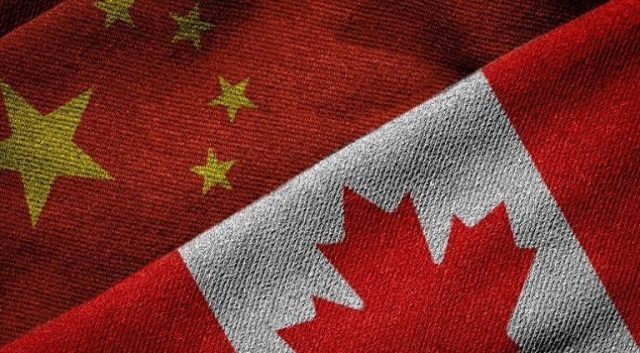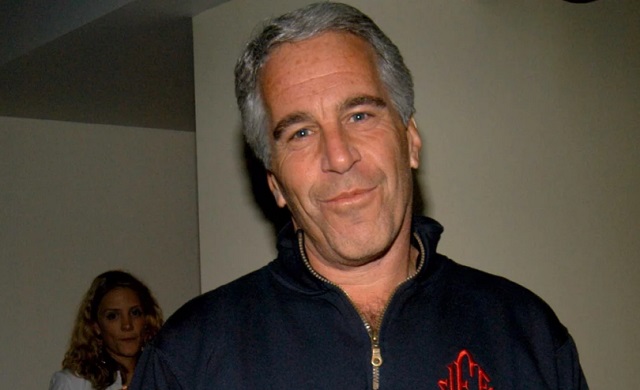espionage
Government-shackled interference inquiry unlikely to get answers

From the MacDonald Laurier Institute
By Ryan Alford
” the commission will receive a large portion of its testimony in secret with no cross-examination by the parties. Additionally, the government will have the last word not merely on what information is provided to the inquiry, but on what the commission can publish — even in its final report “
The foreign interference inquiry into the 2019 and 2021 elections (also known as the “Hogue commission,” named for Commissioner Marie-Josée Hogue) is holding preliminary hearings this week. Those with experience with public inquiries in general, and with the Rouleau commission into the emergency powers declaration of 2022 in particular, can see it will be a failure.
When it comes to public inquiries, the government makes the rules, and when it says, “Heads I win, tails you lose,” the only winning move is not to play. Those rules, written by the cabinet in the form of a public inquiry commission’s mandate and terms of reference, allow the government to reveal and restrict information about its own failures as it sees fit.
The most important feature of the Hogue commission’s mandate is the restriction on the information provided to the inquiry: the terms of reference state plainly that if the government didn’t provide a confidential cabinet document to Special Rapporteur David Johnston back in 2023 when he was tasked with looking into election interference without the authority of a public inquiry, the commissioner won’t see it, either.
The details that made it into Johnston’s final report were far more tame than what the Canadian Security Intelligence Service (CSIS) allegedly told former Conservative leader Erin O’Toole when he led the party. O’Toole told Parliament that CSIS informed him that he had been targeted in an ongoing campaign of misinformation coordinated by the Chinese Communist Party (CCP). When asked, Johnston said that was news to him. (Subsequently, NDP MP Jenny Kwan added that CSIS had told her she was an “evergreen” target of Beijing.)
When Johnston was confronted about the discrepancies, he merely noted that the information CSIS revealed had not been made available to him at the time, and he had “reported on what was made available to us … the amount of information available was an ocean and we saw a very large lake.” (Unfortunately, Johnston could not see any issue with the political equivalent of investigating the causes of the sinking of the Titanic when directed to do so at Lac Tremblant).
Johnston concluded, based on the information provided to him by the government, that he could not attribute the misinformation spread during the 2021 election to state actors. Information coming from many unofficial sources — and via leaks — makes this untenable. Evidence also shows that Chinese Canadians in Richmond, B.C. were bombarded with slander targeting local Conservative MP Kenny Chiu on the WeChat social media platform.
The Hogue commission should add to its focus the activities of Senator Yuen Pau Woo — and the government’s knowledge of these activities. However, once again, the commission’s ability to investigate hinges entirely on the government’s willingness to hand over sensitive and potentially incriminating documents, and for those targeted by misinformation to speak freely knowing that information will be available immediately to those they named as their persecutors.
Until 2022, Woo served as the facilitator (i.e., caucus leader) of the Liberal-aligned Independent Senators Group. In a decision made on Dec. 4, Commissioner Hogue granted Woo the right to participate in the foreign interference inquiry as an intervenor, as “he will contribute the perspective of a political figure working to address issues of foreign interference while advocating for a community that risks being stigmatized or negatively impacted by counter-interference measures, whether proposed or put in place.”
Woo has been accused of adopting the CCP’s rhetoric but has denied working for China. Groups targeted by CCP intelligence operations in Canada (including Uyghurs and Hong Kongers) opposed Woo’s participation in the interference inquiry (along with that of politicians Han Dong and Michael Chan) on the ground that he would be allowed “access to sensitive information shared by witnesses or victims (and) will deter witnesses from speaking freely.”
Their concerns were aired around the same time as a report emerged alleging Woo had pledged to support the United Front, which is an arm of the CCP. In December, investigative journalist Sam Cooper reported that a recording existed of Woo briefing the Canada Committee 100 Society — a Chinese cultural organization with ties to the United Front according to declassified American intelligence — in May of 2020. In that recording, Woo advised members that groups officially listed by the CCP as United Front Work Department (UFWD) organizations cannot (and presumably, will not) be considered agents of the Chinese state.
However, a Privy Council Office report from 2020 shows that the government knew the CCP’s UFWD had allegedly coordinated electoral interference through community groups. The report specified that the UFWD had facilitated electoral interference in 2019, noting that “the UFWD’s extensive network of quasi-official and local community and interest groups allow it to obfuscate communication and the flow of funds between Canadian targets and Chinese officials.” Despite all this, Woo had reassured the Canada Committee 100 Society that they could continue their activities.
It is already a given that the commission will receive a large portion of its testimony in secret with no cross-examination by the parties. Additionally, the government will have the last word not merely on what information is provided to the inquiry, but on what the commission can publish — even in its final report, as the commission’s terms of reference refer to disclosure procedures that clearly implicate the attorney general’s power to withhold information for the purpose of national security.
This is why the first two days of the inquiry were devoted to managing expectations about how the public’s right to know would need to be “balanced” against national security confidentiality and all the other reasons the government will invoke to justify withholding and censoring information.
It is ironic that at an inquiry made possible by whistleblowers within CSIS, those at the commission will be classed “persons personally bound to secrecy” by an order-in-council issued in tandem with the mandate of the Hogue commission. Most won’t mind; the Hogue commission hired a number of personnel who did yeoman service at the Rouleau commission, including its lead counsel and research council chair.
This time around, there have been no grand public assurances that the government is committed to providing unprecedented access to information. Rather, we’ve been put on notice that obfuscation and dithering over confidentiality will be used to beat us down.
Some parties, like the Uyghur Rights Advocacy Project, have already indicated they have had enough of the charade. Others, including those like members of Parliament Michael Chong and Jenny Kwan, who were the victims of shocking hostility and ineptitude from the CCP and the government, will likely persist, although it is already clear that they deserve much more information, and much better treatment from the Hogue commission.
As for myself, I can only say, “Fool me once, shame on you. Fool me twice, shame on me.”
Ryan Alford is a professor in the Bora Laskin Faculty of Law at Lakehead University and a senior fellow at the Macdonald-Laurier Institute.
espionage
Soros family has been working with State Department for 50 years, WikiLeaks shows

From LifeSiteNews
Files from State Department officials as early as the 1970s show the US government helping the family of radical leftist financier George Soros secure deals and funding.
The U.S. State Department has been working with the Soros family for at least 50 years, Mike Benz demonstrated using diplomatic cables published to Wikileaks.
Benz, a former deputy assistant secretary at the U.S. State Department, explained in a video posted to X on Sunday that he searched for the terms “Soros” and “Open Society Foundation,” which was created by Soros, in Wikileaks’ collection of diplomatic cables. His goal was to “create a comprehensive tapestry of all U.S. state department involvement with Soros and the Open Society Foundation in every country in the world.”
The former state department official, now the executive director of the Foundation for Freedom Online, wanted to document why it was said that George Soros is treated by the U.S. like an “independent entity” akin to a country.
In a 1995 piece published by The New Yorker, former U.S. Ambassador to Turkey Morton Abramowitz said of Soros, “he’s the only man in the US who has his own foreign policy — and can implement it.”
Strobe Tallbott, former deputy secretary of state, also said of the far-left financier, “It’s like working with a friendly, allied, independent entity, if not a government. We try to synchronize our approach to the former Communist countries with Germany, France, Great Britain — and with George Soros.” This he “added with a grin,” wrote Connie Bruck.
Benz reviewed key cables from State Department officials as far back as the 1970s demonstrating the U.S. government’s involvement with the Soros family in what appeared to be a quid pro quo relationship.
In one 1976 cable from former U.S. Secretary of State Henry Kissinger, it was shown that the Brown & Root (now Halliburton), a CIA-linked company known for work on military installations and off-shore drilling platforms, wanted to “go all out” for the construction of a port in Santa Clara, Gabon, a country on the west coast of Africa.
It is noteworthy that Brown & Root’s co-founder Herman Brown was granted a covert security clearance for work with the CIA in 1953 “for use as a covert associate.” As of the 2000s, the company was one of George Soros’ top five holdings, Benz showed.
Referencing Brown & Root’s Manager of International Sales, Kissinger wrote, “O’Sullivan has just come from detailed discussions with Soros Associates to develop background for on-site estimates of construction timetable and costs … to be used in forthcoming talks with Gabon officials.”
Soros Associates, Benz explained, was run by George Soros’ older brother Paul Soros, now deceased.
The cable, addressed to the U.S. Embassy in Gabon, seemed to pressure assistance for the construction of this port, noting that while the request for help with it came at a “difficult time,” “strong interest” in the project and other reasons “preclud[ed] deferral.”
Another series of messages show that the U.S. Department helped the Soros family to secure a contract for the port in Gabon.
According to one cable, the director of the Santa Clara port, named as “Damas,” “said that meetings had been held within the Government of Gabon and were continuing which should lead shortly to the elimination of all but a few offers and that Soros was in a very good position.”
Benz remarked, “Here is the head of the State Department in Gabon backchanneling with the head of the port to make sure that Paul Soros won the bid. Eliminate all of the opposition.”
Another message read, “It appears Soros Associates virtually certain to get engineering contract for Port.”
“Not only is the US State Department negotiating Soros’ deals, helping him secure the deals. They’re also backchanneling so that foreign governments can pay [S]oros so that Soros makes his appropriate profit on the deal,” remarked Benz.
“There is this favors-for-favors relationship that goes back five decades, And those are just the earliest cables we have,” he added.
The exposure of these cables has been described as an “ultra massive find” by journalist Alex Jones.
The find is massive because George Soros himself, as was admitted by Morton Abramowitz and Strobe Tallbott, has foreign policy interests independent of the U.S. and over the past decades has demonstrated influence on U.S. domestic policy in favor of an impotent justice system, internet censorship, and a wide range of left-wing causes such as abortion, euthanasia, and population control, as well as homosexual “marriage,” and transgenderism. In other words, as some commentators have put it, his impact has been to erode the moral fabric of America and weaken the country.
espionage
Trump: “I HAVE JUST SIGNED THE BILL TO RELEASE THE EPSTEIN FILES!”

President Trump moved Wednesday to end years of secrecy surrounding one of the nation’s most notorious scandals, signing legislation that compels the Department of Justice to hand Congress virtually every scrap of material tied to Jeffrey Epstein. The president announced the move on Truth Social, writing, “I HAVE JUST SIGNED THE BILL TO RELEASE THE EPSTEIN FILES!”
Trump reminded supporters that he personally pressed House Speaker Mike Johnson and Senate Majority Leader John Thune to fast-track the legislation. “Because of this request, the votes were almost unanimous in favor of passage,” he wrote, pointing to the rare level of bipartisan agreement behind a bill that forces unprecedented transparency. The Epstein Files Transparency Act requires the DOJ to deliver all unclassified records — and as much classified material as possible — to Congress within 30 days. It also directs Attorney General Pam Bondi to provide lawmakers with a list of government officials and other “politically exposed persons” tied to Epstein within just 15 days.
The measure sailed through the House in a staggering 427–1 vote Tuesday before clearing the Senate unanimously. Its path to passage wasn’t always straightforward. For months, the Trump administration had sparred with lawmakers pushing for the release, with the president often calling the frenzy around “Epstein files” a Democrat-driven hoax designed to smear him.
In his Truth Social post, Trump leaned into the history, reminding Americans that Epstein “was charged by the Trump Justice Department in 2019 (Not the Democrats!)” and that the disgraced financier “was a lifelong Democrat” who poured money into Democrat campaigns. The president also pointed to Epstein’s well-documented relationships with high-profile Democrats, listing figures such as Bill Clinton — “who traveled on his plane 26 times” — former Treasury Secretary Larry Summers, activist billionaire Reid Hoffman, House Minority Leader Hakeem Jeffries, and Delegate Stacey Plaskett. “Perhaps the truth about these Democrats, and their associations with Jeffrey Epstein, will soon be revealed,” Trump wrote.
He added that the DOJ, under his direction, has already provided Congress nearly 50,000 pages of Epstein-related material — a stark contrast, he said, to the Biden administration, which “did not turn over a SINGLE file or page related to Democrat Epstein, nor did they ever even speak about him.”
For Trump, the transparency push is as much about exposing what Democrats don’t want voters to see as it is about delivering documents. He argued that the left had leaned on “the ‘Epstein’ issue” to distract from the “AMAZING Victories” of his administration. Now, with the bill signed and agencies under a firm deadline, he predicted the political tables are about to turn.
“This latest Hoax will backfire on the Democrats just as all of the rest have!” he wrote — a warning, and a promise, as Washington braces for whatever the next 30 days will reveal.
-

 COVID-192 days ago
COVID-192 days agoFDA says COVID shots ‘killed’ at least 10 children, promises new vaccine safeguards
-

 Alberta2 days ago
Alberta2 days agoNet Zero goal is a fundamental flaw in the Ottawa-Alberta MOU
-

 Addictions2 days ago
Addictions2 days agoManitoba Is Doubling Down On A Failed Drug Policy
-

 Food2 days ago
Food2 days agoCanada Still Serves Up Food Dyes The FDA Has Banned
-

 COVID-192 days ago
COVID-192 days agoThe dangers of mRNA vaccines explained by Dr. John Campbell
-

 Alberta2 days ago
Alberta2 days agoKeynote address of Premier Danielle Smith at 2025 UCP AGM
-

 Artificial Intelligence1 day ago
Artificial Intelligence1 day ago‘Trouble in Toyland’ report sounds alarm on AI toys
-

 Energy1 day ago
Energy1 day agoCanadians will soon be versed in massive West Coast LPG mega-project






